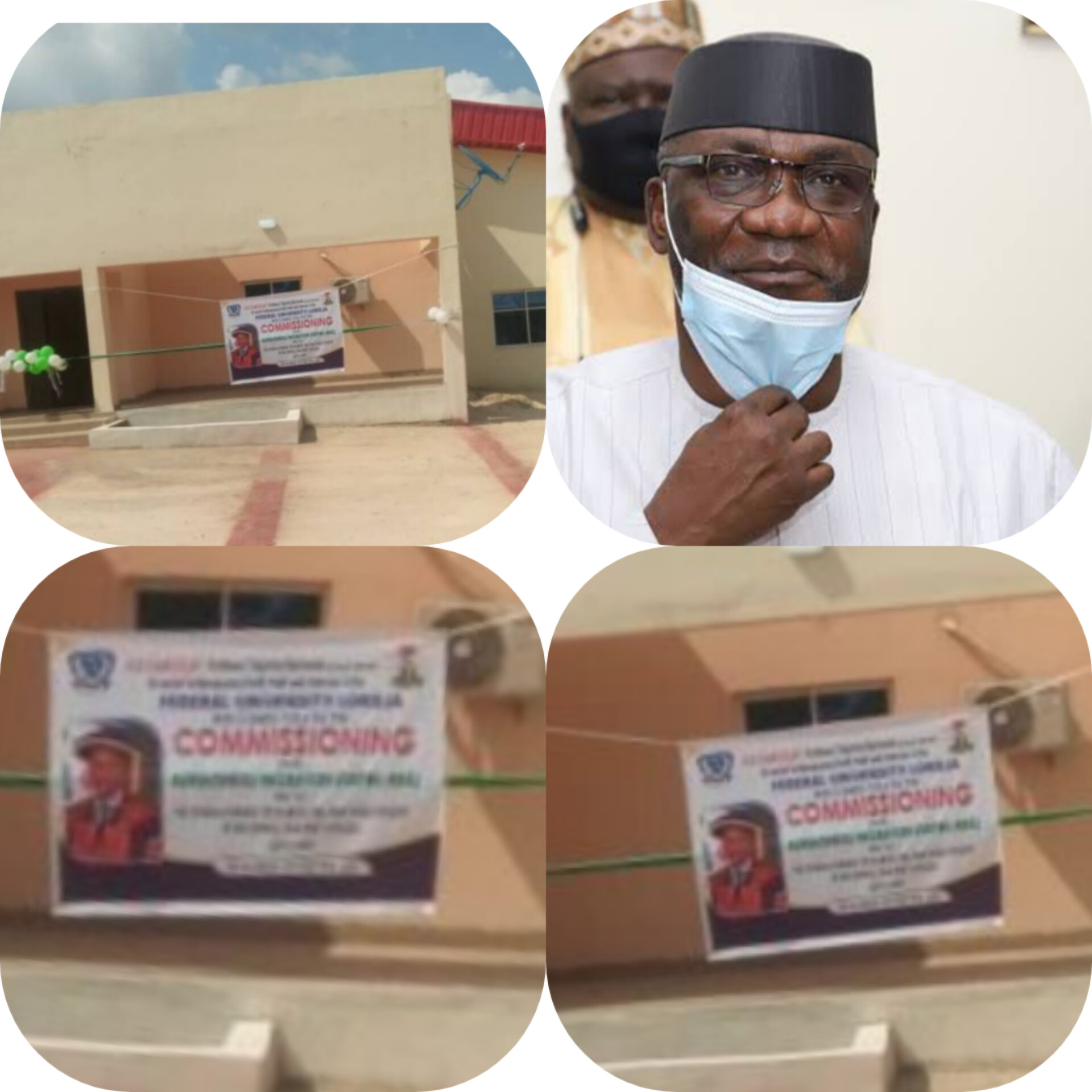By Friday Idachaba, Lokoja.
The Federal Ministry of Agriculture and Food Security, has inaugurated an Agribusiness Incubation Centre (ABIC) in Federal University Lokoja (FUL), in Kogi towards boosting food production and security in Nigeria.
Dr Ernest Umakhihe, Permanent Secretary of the Ministry, who Inaugurated the centre on Saturday in Lokoja as part of the 6th and 7th Convocation ceremony of the Federal University Lokoja.

Umakhihe said that the Center was focused at enhancing production capacity, value addition, quality control and standards and opening access to local and international markets for the nation’s agricultural produce.
“The incubation centre is being established as a Special Centre of Excellence to support and promote food security in Nigeria, and to support youth and women empowerment as well as promote employment generation, wealth creation and poverty reduction.
“This will be through the development of viable agribusiness and entrepreneurship skills in different Agricultural Value Chains across the country.
“The focus of the centre include; enhancing production capacity, value addition, quality control and standards, and opening access to local and international markets for our agricultural produce.
“The project is aimed at facilitating and attracting investments into the agricultural sector, ensuring survival and sustainability of agri-based businesses and increasing domestic food production and exports, ” he said.
Umakhihe said that the centre would serve as practical knowledge hub where best practical skills, processes and inputs could be acquired on particular commodities.
According to him, the centres will also produce generation of young successor farmers and Agricultural entrepreneurs who can adopt new technologies and innovations across the segments of commodities enterprise/value chain of production, processing, storage and marketing.
“The centre is equipped to provide business basics through comprehensive training programmes along commodity Value chains and business start-ups including access to bank loans and other funds and guarantee programmes.
“The centre will support Market research, linkage to strategic partners, access to investors and the development of business plans and business networking etc”, he added.
The Permanent Secretary expressed satisfaction and appreciated the support and cooperation of the Vice Chancellor, Prof. Olayemi Akinwumi, the Academic and Management of FUL for the successful completion of the centre.
He also expressed the hope that the university would exploit the opportunities to be created by the Center and prove its support as a formidable institution in the concerted efforts of the government to grow the nation’s economy using the agricultural sector.
Responding, the FUL Vice Chancellor, Prof. Olayemi Akinwumi commended the Federal Government for setting up the centre in the University.
Akinwumi pledged to ensure that the institution would make good use of the opportunity offered to it to train the students in to becoming big time agriculturalists that would contribute to the nation’s food production and security.
The Nigerian Pilot reports that the Permanent Secretary also commissioned a six-kilometer road constructed by the Ministry from the university’s Zoo to Lokoja-Okene Road. (Ends)


